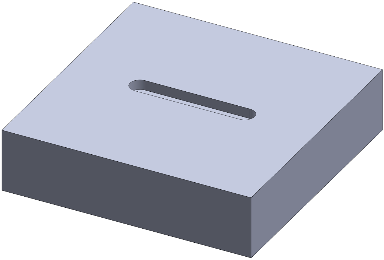Hill Engineering has participated in a collaborative, interlaboratory effort to quantify contour method residual stress measurement reproducibility. The study, entitled ‘Interlaboratory Reproducibility of Contour Method Data in a High Strength Aluminum Alloy’ was published through Experimental Mechanics, and is provided open access on Springer Link. The background, objective, and methods from the abstract text are as follows:
Continue reading Contour Method Reproducibility PublicationCategory: Residual stress measurement
Search results for Hill Engineering blog posts under the subject category residual stress measurement
Residual Stress 101: The Hole Drilling Method vlog
The incremental hole drilling method is one of the most common residual stress measurement techniques employed at Hill Engineering. A reliable and rapid process, it’s the subject of our latest Residual Stress 101 episode.
Continue reading Residual Stress 101: The Hole Drilling Method vlogOn the Road with the Residual Stress Field Team
In the ever-evolving landscape of materials science and engineering, on-site solutions are an important component of residual stress testing. That’s why we at Hill Engineering have a dedicated residual stress field team, capable of traveling directly to customers’ locations in order to deliver the same precision and data quality of our in-house residual stress measurements.
Continue reading On the Road with the Residual Stress Field TeamOvercoming Challenges in Residual Stress Measurements on Small Test Specimens Using the Slitting Method
When it comes to measuring residual stress in small test specimens, precision is paramount. The slitting method is well suited to this application due to the high accuracy of wire EDM machining. However, this method is not without its challenges, especially when applied to very small test specimens, such as the 0.022-inch diameter wire we recently measured.
Continue reading Overcoming Challenges in Residual Stress Measurements on Small Test Specimens Using the Slitting MethodPublication alert – Multiscale framework for prediction of residual stress in additively manufactured functionally graded material
Hill Engineering recently published new research with collaborators from around the world including South Korea, Australia, China, and the United Kingdom. The work is titled Multiscale framework for prediction of residual stress in additively manufactured functionally graded material. The abstract text is available here along with a link to the publication.
Continue reading Publication alert – Multiscale framework for prediction of residual stress in additively manufactured functionally graded materialNew Case Study – TrueSlot®
Our latest case study is up and it’s all about TrueSlot®, our innovative technique for measuring near-surface residual stress!
Continue reading New Case Study – TrueSlot®Advances in Residual Stress Technology in honor of Drew Nelson
A special Issue of Experimental Mechanics on Advances in Residual Stress Technology in Honor of Drew Nelson was recently published. The Special Issue recognizes Dr. Nelson, Mike’s PhD advisor at Stanford University and a leader in the residual stress community, on becoming emeritus after 40 years of research contributions and teaching on the experimental determination of residual stresses and their effects on fatigue.
Continue reading Advances in Residual Stress Technology in honor of Drew NelsonHill Engineering featured in Railway Track & Structures – August 2022
We recently learned that some hole drilling method and contour method results were highlighted in the August 2022 issue of Railway Track and Structures. The article is titled Residual stress investigation of ultrasonic impact treated and untreated thermite welds.
Continue reading Hill Engineering featured in Railway Track & Structures – August 2022Short Course Announcement – Residual Stress 101
The upcoming SEM Annual Conference and Exposition on Experimental and Applied Mechanics will include a Pre-conference Course titled: Residual Stress 101. The residual stress short course is scheduled for Sunday, June 12, 2022, from 9:00 a.m. to 5:00 p.m.
The course aims to cover a broad, practical introduction to residual stresses for students, researchers and industrialists with an interest in the subject. The course will be taught by Michael Prime, Michael Hill, Adrian DeWald, Luliana Cernatescu, Jeff Bunn, and Gary Schajer. Registration is currently open through the SEM Website.
Continue reading Short Course Announcement – Residual Stress 101Contour Method 101: Two-Dimensional Mapping of Residual Stress
We talk a lot about the residual stress measurement techniques we employ at Hill Engineering. One of the most commonly used is the Contour Method! Invented in the year 2000, and patented by Los Alamos National Laboratory, the contour method measures 2D residual stresses over a planar surface.
Continue reading Contour Method 101: Two-Dimensional Mapping of Residual Stress